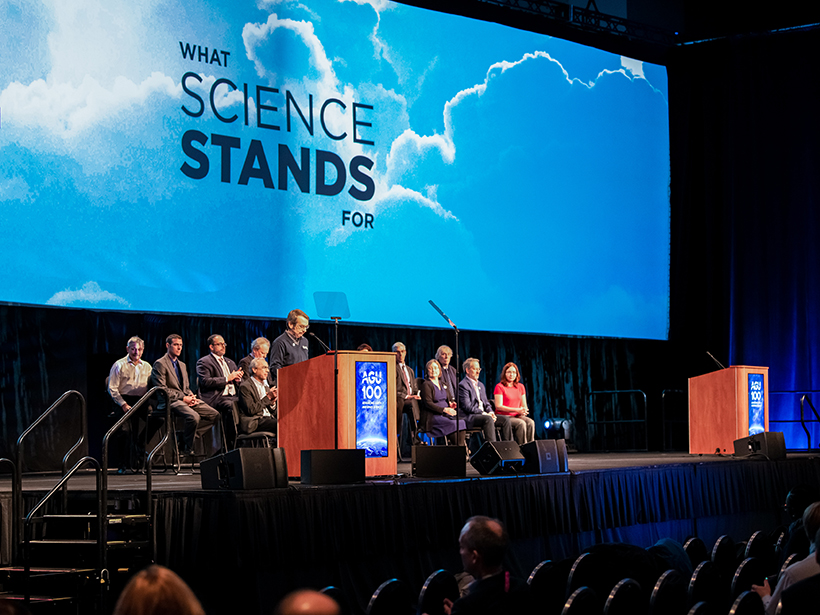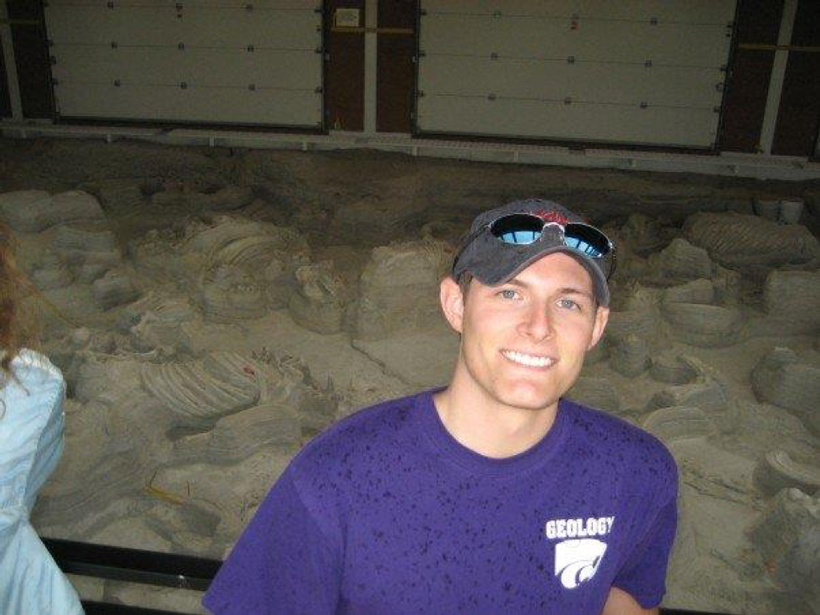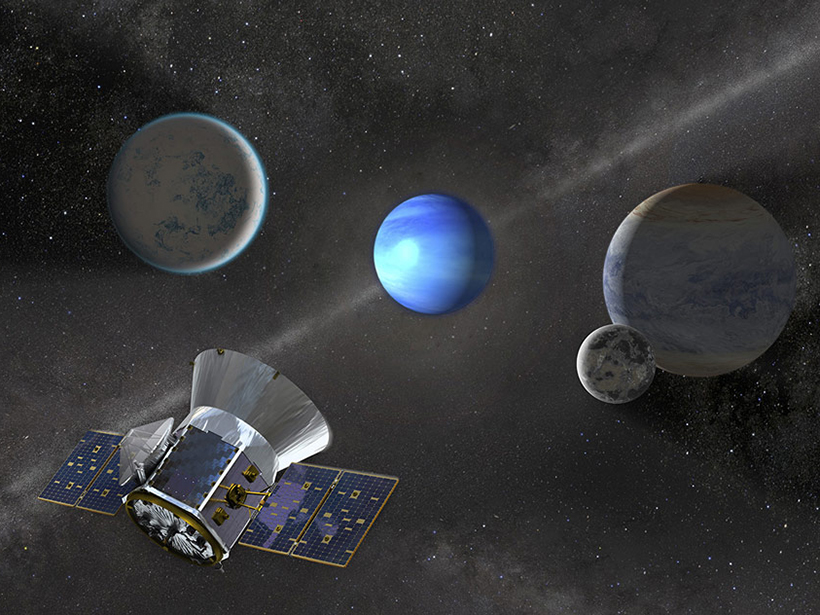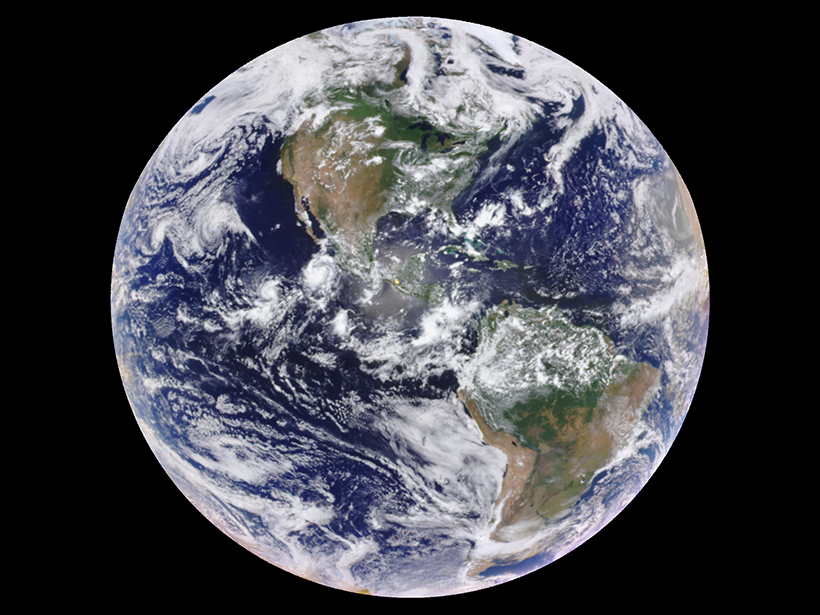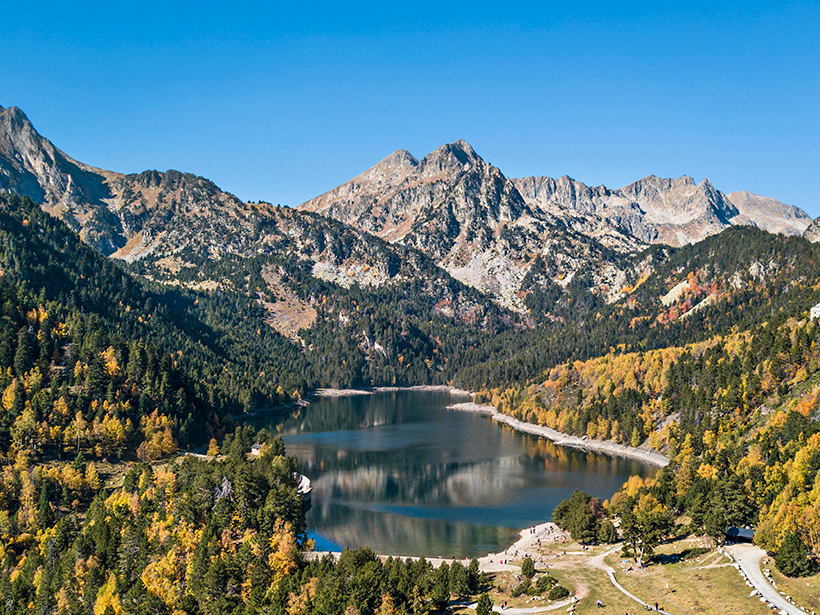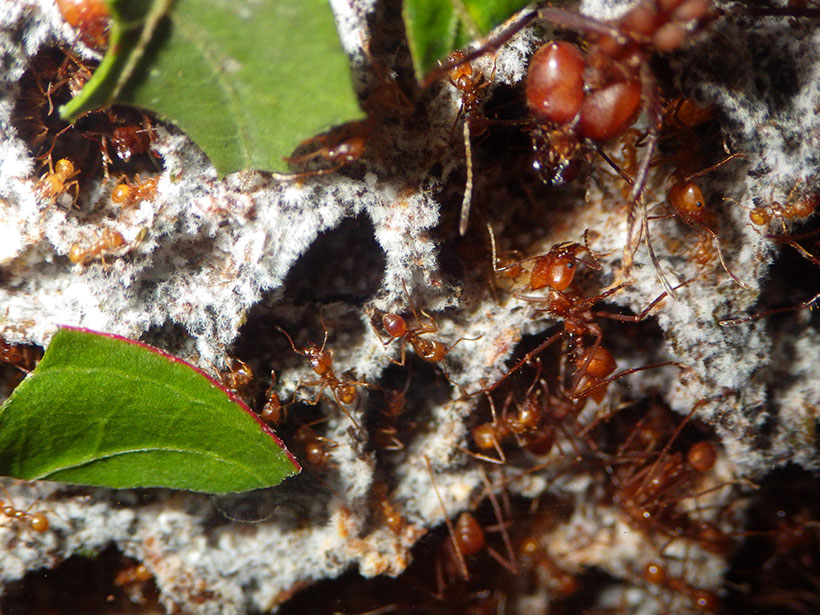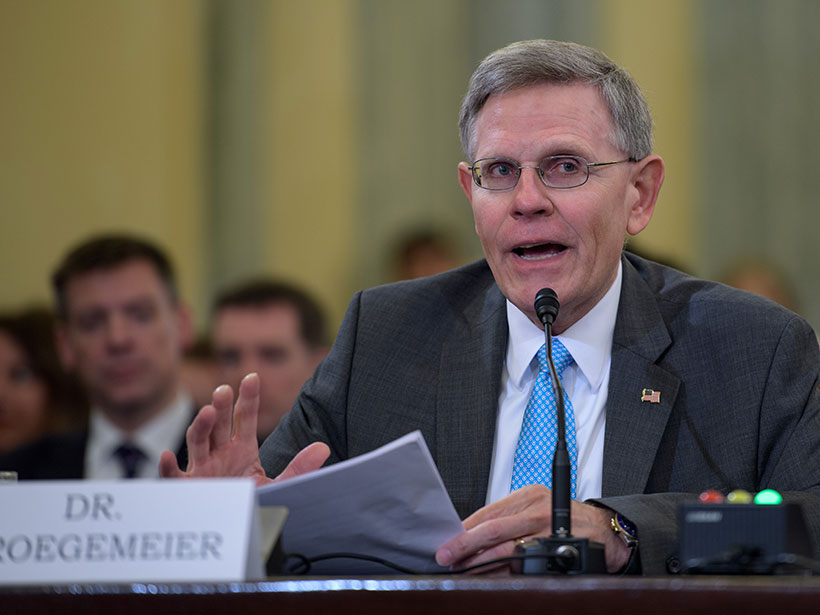A panel of scientists kicks off AGU’s Centennial by looking back on the groundbreaking achievements of the past century.
News
Kody Kramer (1985–2018)
His vision and persistence created a 1.4-billion-pixel map of the Gulf of Mexico seafloor—a crucial tool in research on the Deepwater Horizon oil spill and a completely new standard for bathymetry maps.
NASA Space Telescope Spots Its Third Planet
A planet 3 times as large as the Earth was detected by the Transiting Exoplanet Survey Satellite in a relatively leisurely orbit—the longest yet detected by this telescope—of 36 days.
Rooftop Gardens Make Use of the Air We Breathe Below
Growing plants near building air vents may help them grow better, while reducing the carbon emissions from the people exhaling inside.
One-Pixel Views of Earth Reveal Seasonal Changes
By averaging satellite images of the Earth down to a single pixel, researchers trace how the planet’s mean color varies over time, results that inform observations of distant exoplanets.
Microbes Rain Down from Above, to the Tune of the Seasons
Every time snow or rain falls, it brings with it microbes from high in the atmosphere. Could those microbes have a seasonal signal, just like the plants on the land below?
Ant Nests Act as Carbon Dioxide Chimneys
Leaf-cutter ant nests emit thousands of times more carbon dioxide than the surrounding soils do, a new study has found.
Lander Gives First Look at Moon’s Farside
The mission aims to explore this relatively unstudied hemisphere and learn about its age, composition, and geologic history.
New Horizons Sends First Looks of 2014 MU69
Explore 10 things scientists have already learned about the most distant object visited by a spacecraft from Earth.
White House Science Adviser Seat Filled After 2 Years
The Senate’s confirmation of Kelvin Droegemeier to head the White House Office of Science and Technology Policy is a win for the science community. But will Trump take his advice?

